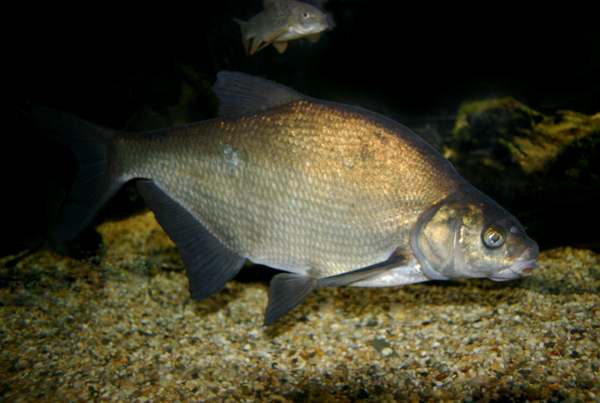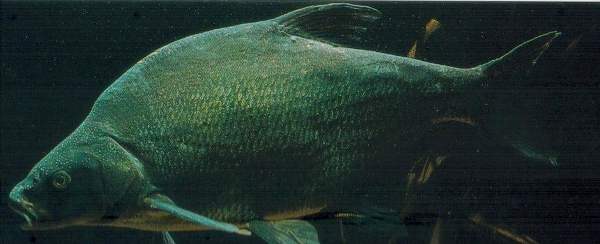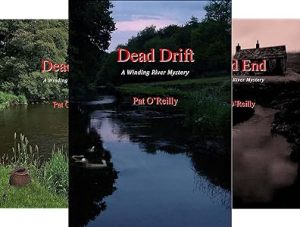Abramis brama - Common Bream
Phylum: Chordata - Class: Actinopterygii - Order: Cypriniformes - Family: Cyprinidae

Common Bream, also sometimes referred to as Bronze Bream, are fish of sluggish water. Bream are long lived and can attain an age of 20 years in suitable circumstances.Once a major source of food for poor people in some parts of Britain, Common Bream are shoal fish and specimens weighing 10lb (approx. 4.5 kg) are not uncommon. The British rod-caught record, from Ferry Lagoon, Cambridgeshire, weighed 22lb 11oz; it was caught by Scott Cooke in 2011.
Bream are bottom feeders, living mainly on insect larvae from the muddy beds of canals, lakes and slow-flowing rivers. They lay their spawn among weeds in shallow water during June and July, at which time the males develop white lumps, called tubercles, on their heads.

Young bream are commonly referred to as skimmers or skimmer bream; they are sometimes mistakenly identified as Silver Bream (Blicca bjoerkna), a much smaller species with large eyes and reddish pectoral and pelvic fins.
Acknowledgements
This page includes pictures kindly contributed by Dr Nick Giles.
Excited by rivers and streams? So are we, and we're pretty sure you would find the Winding River Mystery trilogy of action-packed thrillers gripping reading too. Dead Drift, Dead Cert, and Dead End are Pat O'Reilly's latest river-based novels, and now they are available in ebook format. Full details on our website here...
Buy each volume in ebook format for only £2.47 on Amazon... Paperbacks also available on Amazon at £6.95 each. All proceeds go towards keeping the First Nature website online.
Please Help Us: If you have found this information interesting and useful, please consider helping to keep First Nature online by making a small donation towards the web hosting and internet costs.
Any donations over and above the essential running costs will help support the conservation work of Plantlife, the Rivers Trust and charitable botanic gardens - as do author royalties and publisher proceeds from books by Pat and Sue.
